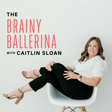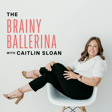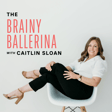
21. Writing your Own Dance Story with Linnea Swarting
Linnea Swarting is a professional ballerina currently dancing on tour with the Grand Kyiv Ballet. She previously danced with Los Angeles Ballet, Ballet Project OC, Nashville Ballet, and as a principal with Georgia Dance Theatre. She is also a contributing writer for Pointe Magazine and author of the Ballet Writer Blog.
Linnea’s honesty is incredibly refreshing. She doesn’t shy away from talking about the tough parts of her career, including struggles with body image and the disappointment of not getting the contract. We also chat about how she got started writing for the iconic Pointe Magazine as well as our shared passion for making ballet more accessible to all dancers. I connected to Linnea on so many levels and truly resonated with her story - I know you will too!
Key Moments:
- Early dance training [2:13]
- Her transition to a professional dance career [9:01]
- Linnea’s struggles with body image [14:20]
- Navigating her dance career during a global pandemic [27:33]
- Linnea’s perspective shift as she approaches 30 [34:06]
- How Linnea got started writing for Pointe Magazine [40:10]
- Linnea’s passion for making ballet more accessible to all dancers [45:03]
- Her biggest piece of advice for dancers pursuing a career [1:02:16]
Connect with Linnea:
LINNEA’S WEBSITE: www.linneaswarting.com
INSTAGRAM: instagram.com/lswarting
INSTAGRAM: instagram.com/theballetwriter
Links and Resources:
Get your copy of The Ultimate Audition Guide
Set up ticketing for your next event with DRT (Make sure to mention that The Brainy Ballerina sent you!)
Let’s connect!
My WEBSITE: thebrainyballerina.com
INSTAGRAM: instagram.com/thebrainyballerina
1-1 CAREER MENTORING: book your complimentary career call
Questions/comments? Email me at caitlin@thebrainyballerina.com


